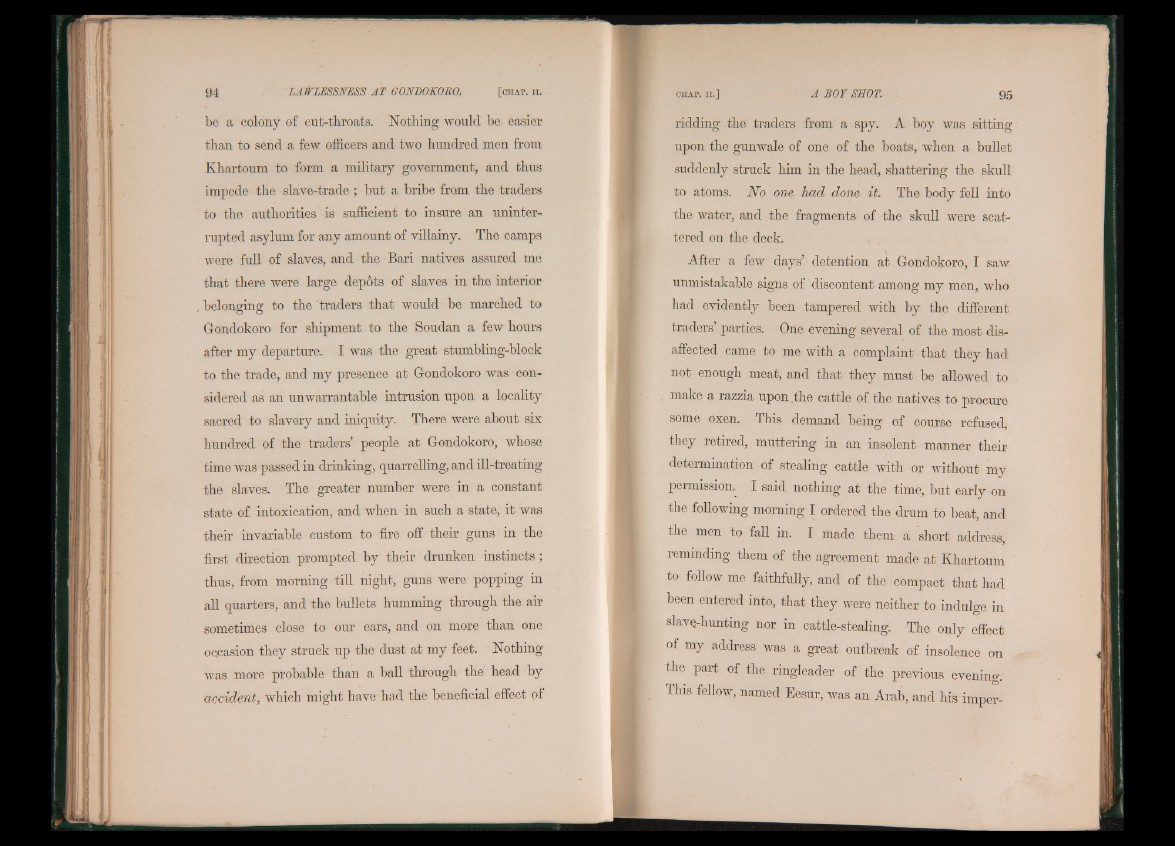
be a colony of cut-throats. Nothing would be easier
than to send a few officers and two hundred men from
Khartoum to form a military government, and thus
impede the slave-trade ; but a bribe from the traders
to the authorities is sufficient to insure an uninterrupted
asylum for any amount of villainy. The camps
were full of slaves, and the Bari natives assured me
that there were large dépôts of slaves in the interior
belonging1 to the traders that O O would be marched to
Gondokoro for shipment to the Soudan a few hours
after my departure. I was the great stumbling-block
to the trade, and my presence at Gondokoro was considered
as an unwarrantable intrusion upon a locality
sacred to slavery and iniquity. There were about six
hundred of the traders’ people at Gondokoro, whose
time was passed in drinking, quarrelling, and ill-treating
the slaves. The greater number were in a constant
state of intoxication, and when in such a state, it was
their invariable custom to fire off their guns in the
first direction prompted by their drunken instincts ;
thus, from morning till night, guns were popping in
all quarters, and the bullets humming through the air
sometimes close to our ears, and on more than one
occasion they struck up the dust at my feet. Nothing
was more probable than a ball through the head by
accident, which might have had the beneficial effect of
ridding the traders from a spy. A boy was sitting
upon the gunwale of one of the boats, when a bullet
suddenly struck him in the head, shattering the skull
to atoms. No one had done it. The body fell into
the water, and the fragments of the skull were scattered
on the deck.
After a few days’ detention at Gondokoro, I saw
unmistakable signs of discontent among my men, who
had evidently been tampered with by the different
traders’ parties. One evening several of the most disaffected
came to me with a complaint that they had
not enough meat, and that they must be allowed to
make a razzia upon .the cattle of the natives to procure
some oxen. This demand being of course refused,
they retired, muttering in an insolent manner their
determination of stealing cattle with or without my
permission. I said nothing at the time, but early on
the following morning I ordered the drum to beat, and
the men to fall in. I made them a short address,
reminding them of the agreement made at Khartoum
to follow me faithfully, and of the compact that had
been entered into, that they were neither to indulge in
slave-hunting nor in cattle-stealing. The only effect
of my address was a great outbreak of insolence on
the part of the ringleader of the previous evening.
This fellow, named Eesur, was an Arab, and his imper